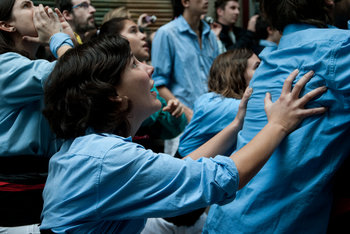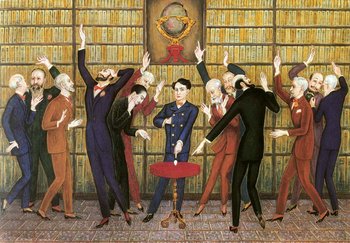
Art For Art's Sake
The idea that art is its own reward that requires no other motivation.Avoidance
The avoidance of negative stimuli such as pain.Cognitive Dissonance
A desire to achieve internal consistency. For example, a desire for actions to be consistent with an individual's beliefs.Convenience And Comfort
At the most primitive level, organisms have the motivation to conserve their energy. This may translate into modern human motivations such as a desire for convenience and comfort.Desires
Commonly cited desires that affect motivation include eating, acceptance, curiosity, family, honor, independence, order, physical activity, power, romance, social contact, status, tranquility and vengeance.Drives
The theory that the desire to achieve goals or satisfy needs builds over time until that goal or need is satisfied and the cycle resets.ERG Theory
The theory that motivation is primarily related to existence, relatedness and growth.Expectations
The observation that motivation is often impacted by expectations. For example, if you expect that if you work hard that you will receive a large bonus you may be more motivated than if you have low expectations.Extrinsic Motivation
Motivation driven by external rewards such as money, status and praise.Fear Of Missing Out
A fear of missed opportunities such as a sense that life is passing you by.Hygiene Factors
Hygiene factors are basic expectations that don't increase motivation but dramatically decrease motivation if they are not met.Ikigai
A Japanese concept of motivation that is often translated "a reason for being." The idea is associated with self-directed goals that act as a person's primary motivation on a long term basis.Intrinsic Motivation
Behavior that is intrinsically rewarding. For example, studying a topic out of a desire to master it as opposed to being motivated by grades.Locus Of Control
Locus of control is the extent to which an individual feels they control the events that surround their life. It is known to be a factor in motivation.Needs
Needs are a basic type of motivation that include physiological requirements, safety, love, belonging, esteem, self-actualization and self-transcendence as per Maslow's Hierarchy of Needs.Pull
Behaviors that an individual feels pulled towards.Push
Behaviors that an individual pushes themselves to do. For example, a student may push to study all night before an exam.Rational Motivation
Doing what seems most rational.Reactance
The motivation to resist commands, rules and actions that are perceived as a violation of personal freedoms.Rewarding Stimuli
Motivation driven by the brain's reward system such as a desire to eat sugary foods.Self Determination
The will to self define your existence as opposed to being shaped by external pressures.Self Efficacy
The level of confidence that an individual has in their abilities is a strong factor in motivation.| Overview: Motivation | ||
Type | ||
Definition | The will to do things. | |
Related Concepts | ||












































